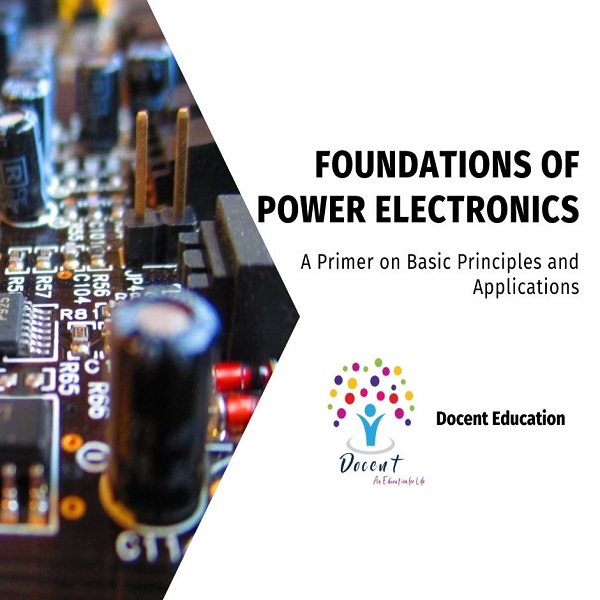Power electronics is a crucial field in electrical engineering that deals with the conversion and control of electrical power. The course, "Foundations of Power Electronics: A Primer on Basic Principles and Applications," provides a comprehensive overview of the fundamental concepts and applications of power electronics.
Students will explore the principles behind power electronic devices and circuits, including diodes, transistors, and converters. They will learn how to analyze and design these circuits for various applications, such as motor drives, renewable energy systems, and power supplies. Additionally, they will understand the key parameters and characteristics of power electronic components, as well as the latest advancements in the field.
Through a combination of lectures, hands-on experiments in simulation, and project ideas, students will gain practical skills in designing, testing, and troubleshooting power electronic systems. They will also learn how to optimize the efficiency and performance of these systems while ensuring reliable operation.
By the end of the course, students will have a solid foundation in power electronics and be equipped with the knowledge and skills to tackle real-world engineering challenges. Whether you are a student looking to enter the field of power electronics or a practicing engineer seeking to enhance your expertise, this course will provide you with the essential tools and insights to succeed in this dynamic and rapidly evolving field.
What will i learn?
- Students will be able to demonstrate a thorough understanding of the basic principles and concepts of power electronics
- Course Requirements: Foundations of Power Electronics: A Primer on Basic Principles and Applications Course Description: This course provides an introduction to the fundamental principles of power electronics and their applications in various electronic systems. Students will learn about the basics of power electronic circuits, semiconductor devices, and their characteristics. The course will also cover the operation of power converters, inverters, and rectifiers, as well as their applications in power supplies, motor drives, and renewable energy systems. Course Objectives: - Understand the basic principles of power electronics and their applications - Analyze and design power electronic circuits using semiconductor devices - Evaluate the performance of power converters, inverters, and rectifiers - Apply power electronics principles to real-world applications in power systems, motor drives, and renewable energy systems .
-
Who should take this course?
Preview 00:00:41
-
Course structure
Preview 00:01:39
-
Conclusion
Preview 00:00:49
-
Introduction
Preview 00:00:41
-
Objectives
Preview 00:00:28
-
What is Power Electronics ?
Preview 00:00:38
-
Key Concepts
Preview 00:00:45
-
Applications overview
Preview 00:00:55
-
Importance of Understanding Power Electronics
Preview 00:00:44
-
Power Semiconductor Devices
00:03:07
-
Rectifiers (AC to DC)
00:03:27
-
Choppers
00:03:26
-
Inverters
00:02:17
-
AC Voltage Controller
00:03:18
-
Other Converters
00:03:03


Write a public review